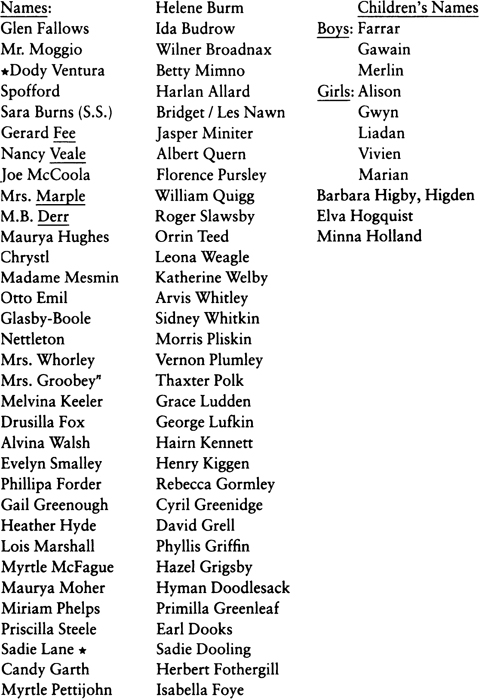– A little later: exactly three weeks from today – and this book will see it, I finish classes. I feel strange after today, so tired I long only for sleep – and must still stay in stockings to leave momently for student supper at Park House. Ted received a terse, or rather, wordless, communication from The Nation in the noon mail: a proof, on the Nation’s usual smutchy blotting paper, of his poem “Historian”: it is a difficult, different, abstract poem, but I have come to like it immensely. Today was streaks & patches – sallies out thrice during exams to shop & read, between exams to glimpse at magazines – all miscellaneous patches & pieces. And the day, from a cold morning overcast with a jigsaw puzzle of high tight clouds, blew away with clouds, presented a clear sun, blue sky and cool wind. I am ridiculously apathetic about my work – distant, bemused, feeling, as I said, a ghost of the world I am working in, casting no shadow. And living thus a living death, which I shall expatiate upon at length as we deal with TS Eliot this week and next. How I shall live until May 22nd I wonder. The Arvin exams till June 1st present no problem: it is the platform preaching that wearies.

August 28: Thursday: A chill clear morning. Yesterday’s anger has clearer, finer edges now: I could have said more than I did better than I did, but in four days we will be off & all here will lose its emotional tension & become a flat memory only, to be ordered, embellished by the chameleon mind. Dreamed last night I was beginning my novel – “What is there to look to?” Dody Ventura said – a beginning conversation – then, a sentence, a paragraph, inserted first of all of description to ‘place’, to ‘set’ the scene: a girl’s search for her dead father – for an outside authority which must be developed, instead, from the inside. Midnight: still tired, but curiously elated, as if absolved from suffocation – projects bubble: Boston & our flat seems as fine, finer than Widow Mangada’s Mediterranean hideout or our Paris Left Bank room. Suddenly I like people, can be nice, natural. We lolled over supper: cold chicken, summer squash, cabbage – sat in the twilit rose garden – a cricket chirred from the ivy on the stone wall, stone flagstones between which grass grew long, roses of pink and yellow, color gone in the grey blueing twilight to a faintly luminous pallor, the fountain plinking, five arcs on the summer house temple, the stone lionhead set in the wall, a ferocious grimace set in stone. I think I am growing more casual – am I? Or is this a lull in a merry go round of panic blackouts, to take all for what it is & delight in the small pleasures – a good dog poem by Ted: a green afternoon with Esther Baskin & Tobias under the trees, apples fallen, rotting on the ground, reading her essay of the bat, Ted’s proof of the pike poem – Tobias blond, pink, cherubic, smiling, crowing, crawling, taking the papers from my purse & scattering them about – an atmosphere of books, poems, wood engravings, statues. Tea & cookies at the Clarkes – they opening up, mimicking Mary’s father – Mr. Godfrey, the old drunken lawyer in the condemned house nextdoor, the boys who threw his mother’s picture out of the window, his pillows & all his law books – no heat, no water he had.
Piano Sonata Eb no. 11 – Atitur Schnable WCRB
Sonata no 12 Ab Op.26
 like a faceted diamond. I was up somewhere on a dark high place watching it pass over head like a diamond moon, moving rapidly out of sight & then, suddenly, there were a series of short sharp jerks & I saw the planet halted in a series of still-shot framed exposures, which for some reason was a sight not granted to the human eye, & at once I was lifted, up, my stomach & face toward earth, as if hung perpendicular in mid-air of a room with a pole through my middle & someone twirling me about on it. I looked down at Ted’s kahki legs stretched out on a chair, & the bodies of other faceless people crowding the room & my whole equilibrium went off, giddy, as I spun & they spun below & I heard surgical, distant, stellar voices discussing me & my experimental predicament & planning what to do next. I spun, screaming, sick & woke up to a knife-cutting sore throat, a headache which is now at its height, & a swollen, streaming nose. Tried to write a poem about a fool on April Fool’s day, but was too weak & drugged to lift a pen, so it didn’t work. Feel very blue. Hate wasting a weekend like this. To hell. This makes me want a Spanish climate. To breathe. Pored over Beardsley. Felt utterly fin de siècle & fin de moi-měme.
like a faceted diamond. I was up somewhere on a dark high place watching it pass over head like a diamond moon, moving rapidly out of sight & then, suddenly, there were a series of short sharp jerks & I saw the planet halted in a series of still-shot framed exposures, which for some reason was a sight not granted to the human eye, & at once I was lifted, up, my stomach & face toward earth, as if hung perpendicular in mid-air of a room with a pole through my middle & someone twirling me about on it. I looked down at Ted’s kahki legs stretched out on a chair, & the bodies of other faceless people crowding the room & my whole equilibrium went off, giddy, as I spun & they spun below & I heard surgical, distant, stellar voices discussing me & my experimental predicament & planning what to do next. I spun, screaming, sick & woke up to a knife-cutting sore throat, a headache which is now at its height, & a swollen, streaming nose. Tried to write a poem about a fool on April Fool’s day, but was too weak & drugged to lift a pen, so it didn’t work. Feel very blue. Hate wasting a weekend like this. To hell. This makes me want a Spanish climate. To breathe. Pored over Beardsley. Felt utterly fin de siècle & fin de moi-měme.
 ‘Four years ago C. was one day going home from her work when she met in the street the apparition of a woman which spoke to her. Suddenly something like a cold wind blew down her neck as she was speaking, & she at once became as if dumb. Later her voice returned, but very hoarse & shrill.” … “She then loses the sense of her individuality”.
‘Four years ago C. was one day going home from her work when she met in the street the apparition of a woman which spoke to her. Suddenly something like a cold wind blew down her neck as she was speaking, & she at once became as if dumb. Later her voice returned, but very hoarse & shrill.” … “She then loses the sense of her individuality”. 
 “Although the patient appeared possessed, his malady was not possession but the emotion of remorse. This was true of many possessed persons, the devil being for them merely the incarnation of their regrets, remorse, terrors & vices.”
“Although the patient appeared possessed, his malady was not possession but the emotion of remorse. This was true of many possessed persons, the devil being for them merely the incarnation of their regrets, remorse, terrors & vices.”
